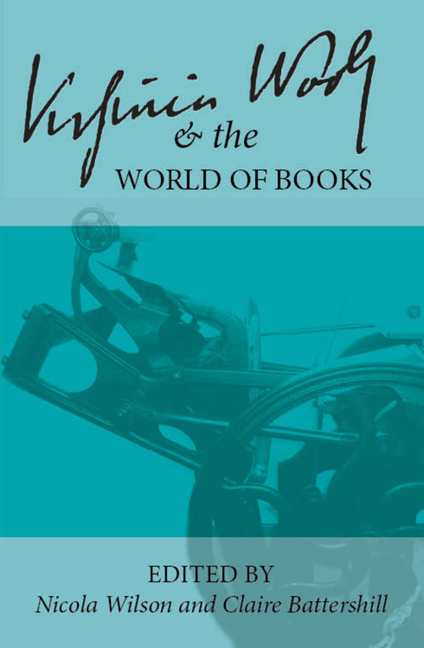 Virginia Woolf and the World of Books
Virginia Woolf and the World of Books Book contents
- Frontmatter
- Contents
- Introduction
- List of Abbreviations
- Keynote
- In the Archives
- A Voice in the Archives: In Search of Woolf's Lost Tape
- On Manuscripts: Virginia Woolf and Archives
- Echo's Voices: Virginia Woolf, Irena Krzywicka, and The Well of Loneliness
- Craftsmanship
- The Hogarth Press
- Hours in A Library
- The Art of the Book
- The Art of the Narrative
- Making New Books: Creative Approaches
- The Book in the World: Woolf's Global Reception
- Editing and Teaching Woolf
- Intertextuality
- Lives in Writing
- Notes on Contributors
A Voice in the Archives: In Search of Woolf's Lost Tape
from In the Archives
- Frontmatter
- Contents
- Introduction
- List of Abbreviations
- Keynote
- In the Archives
- A Voice in the Archives: In Search of Woolf's Lost Tape
- On Manuscripts: Virginia Woolf and Archives
- Echo's Voices: Virginia Woolf, Irena Krzywicka, and The Well of Loneliness
- Craftsmanship
- The Hogarth Press
- Hours in A Library
- The Art of the Book
- The Art of the Narrative
- Making New Books: Creative Approaches
- The Book in the World: Woolf's Global Reception
- Editing and Teaching Woolf
- Intertextuality
- Lives in Writing
- Notes on Contributors
Summary
I want to begin this paper unconventionally, and to offer first my inspiration for writing it. If you'll forgive me, I'm going to be musing, while, I hope, telling you a rollicking good story, about a topic deserving of more exacting attention: archives, what they are, and why we're in them. I particularly want to think about why as feminist critics and historians of women's lives, we need to be in them more, and not alone: we need others—the living alongside the dead—at a crucial moment in our political history when the forces of cultural amnesia about the power of collective, and crucially, intergenerational feminisms, is, I fear, on the rise.
Amnesia, loss, gatekeepers, tangerine tinted trash-can fires as leaders of the free world (thank you, Samantha Bee) are all real and existential threats to progressive cultural memory. Searching for origins in the archives may, pace Derrida, be an exercise in infinite regress, but there is also joy and the rock-solid hope of connection that should drive us there, as academics, as humanists, and as teachers leading the new generation. Ted Bishop has described the jouissance of archival pursuit in terms that resonate with my ruminations today and connect with discussions begun at the MSA last November on Jane Garrity's panel “What Are We Doing When We Are in the Archives?”: “Part of the reason we work in archives is, I'm convinced, for the archival jolt, a portal to knowledge and, in itself, an assurance that we have connected with something real.”
For feminists, there are still many voices to be found, still more wily reckonings of self and other, to be unearthed in archives. What I'm going to recount here—essentially the story of my search for a cassette tape that promised a lost recording of Woolf 's voice—touches on all of those things, most particularly that self and other piece: that is, the often-uncanny ways in which what begins as a purely “academic” pursuit, can turn tail, surprising us with apparently unsought revelations. Archival work can make us feel that, far from being well-trained detectives in pursuit of that lost archival gem, the journey itself, for which the archive is the road, is pursuing us, telling truths about our collective lives as scholar-adventurers that propel us forward even in the murkiest of times.
- Type
- Chapter
- Information
- Virginia Woolf and the World of BooksSelected Papers from the Twenty-seventh Annual International Conference on Virginia Woolf, pp. 20 - 25Publisher: Liverpool University PressPrint publication year: 2018
